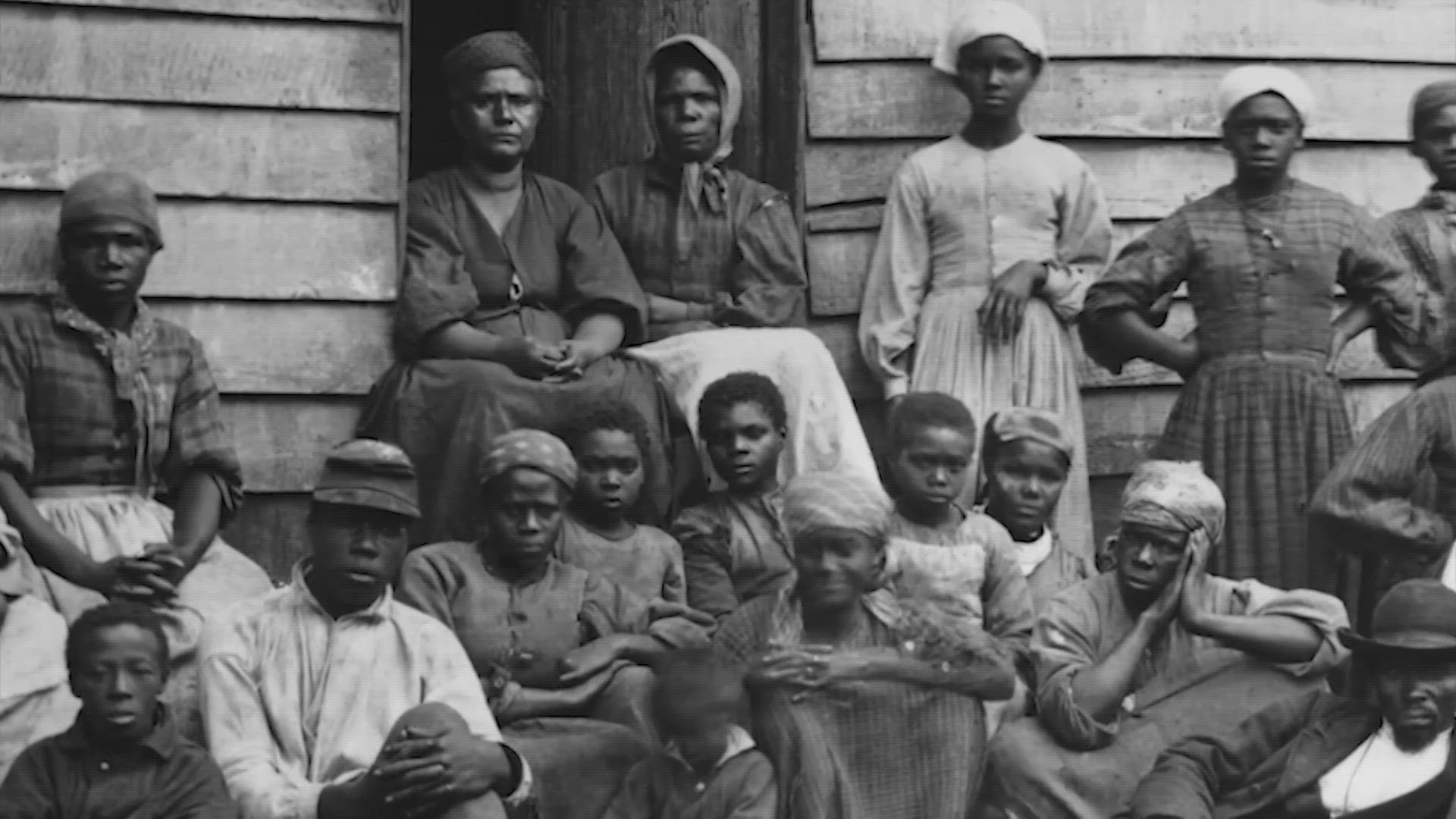HOUSTON — Who are you?
On the surface, it seems like a simple question. But, for millions of Black people, the answer often only goes so deep.
Improvements in ancestry search resources and DNA testing are helping provide a smoother roadmap for those looking to find out who they are.
Curiosity is the foundation that sets many off on the path to finding out who they are, but with Black people's ties to slavery, the search isn't always easy. Instead of Census records, you're likely to start with slave schedules.
The journey of discovery took Lillian Anthony down a winding road. Along the way, she picked up clues to find out what and who shaped her, including Ida B. Wells.
"It's hard to describe because I didn't get to know her. ... I've always looked at her like she's one of the great ones," Anthony said.
Anthony shares DNA with Wells, an educator, activist, journalist and former slave.
"My grandmother and Ida are first cousins," Anthony said.
Her journey began years ago at what now is the Houston Public Library Clayton campus. She started by sorting through microfilm.
"I spent many hours in here doing that," Anthony said. "Genealogists say always start with who you know and from there you just go back."
She knew there were other Wells in her family, but DNA confirmed it all.
"Ancestry matches you with whoever has similar DNA so that's what I found," Anthony said.
The Clayton Library is a treasure trove of information and resources. Former President of the Afro-American Historical and Genealogical Society said the organization has used it as its hub, helping guide others hoping to trace their personal histories.
"This is one of the best libraries in the country and the resources here are great. If you start at the county history books, you want to start there, but they have tons of research resources," Debra Blacklock-Sloan said.
Slavery is often the furthest history Black or African-American people can find due to research challenges oftentimes tied to limited records and extensive illiteracy.
"A story of resilience and perseverance, so it's worth researching our ancestors," Blacklock-Sloan said.
"When you look at DNA records, you have to take into consideration that it's only going to show you so much, so you got to go back to looking at everything in its totality," Kimberly Gay said.
Gay is the academic librarian at Prairie View A&M University and her curiosity around genealogy and ancestry started with learning more about the land where the school sits that used to be home to 1,000 enslaved people. She now helps others find out where they came from.
"You're going to be looking at deed books, maybe breed books, maybe the Census records. You're going to have to look at funeral homes, you're going to have to look at the slave schedules of 1850 or 1860," Gay said.
Gay said that when considering DNA testing, you have to keep in mind the loss of autonomy and what you're willing to share.
"DNA really opens up ... it opens more of a Pandora's Box because you have so many other things to look at," Gay said.
Oftentimes, the DNA collected is saved in a massive database that potentially gives a variety of agencies access to DNA that could be traced back to you and other family members. Gay said to not be discouraged if you opt out of the DNA route -- with more and more records now digitized, she was able to trace her family back to slavery, slave ships and back to Sierra Leone without it.
Blacklock-Sloan and Anthony said that starting the process can be daunting but hope inspiration to begin comes from the curiosity of what you'll discover.
"We hope that it's contagious because everybody should want to know what their origin is, or where they came from," Blacklock-Sloan said.
You can start your search alone, but PVAMU offers weekly support for those interested in their genealogy. The Afro-American Historical and Genealogical Society provides search tips and demonstrations every second Saturday of the month.

